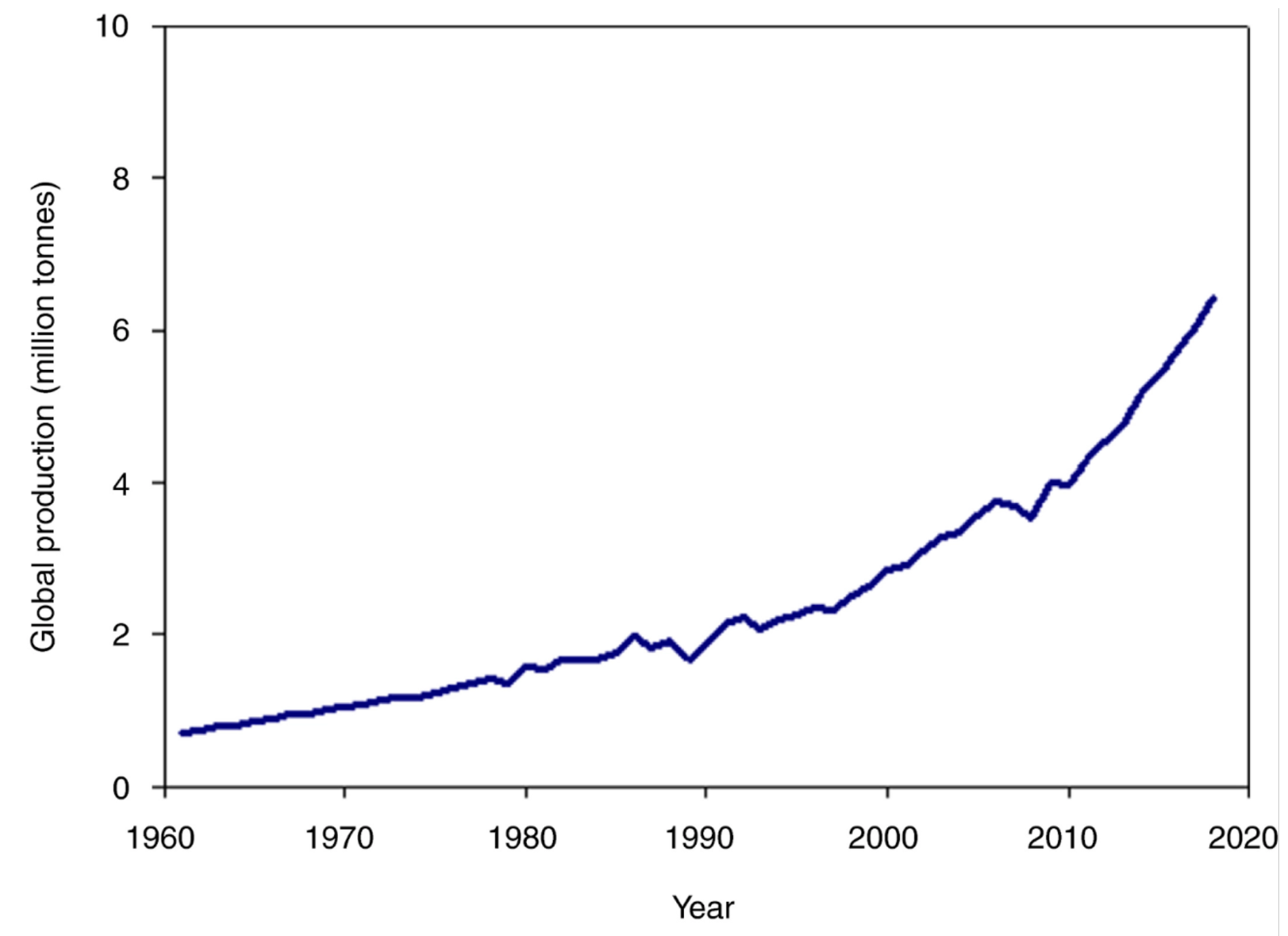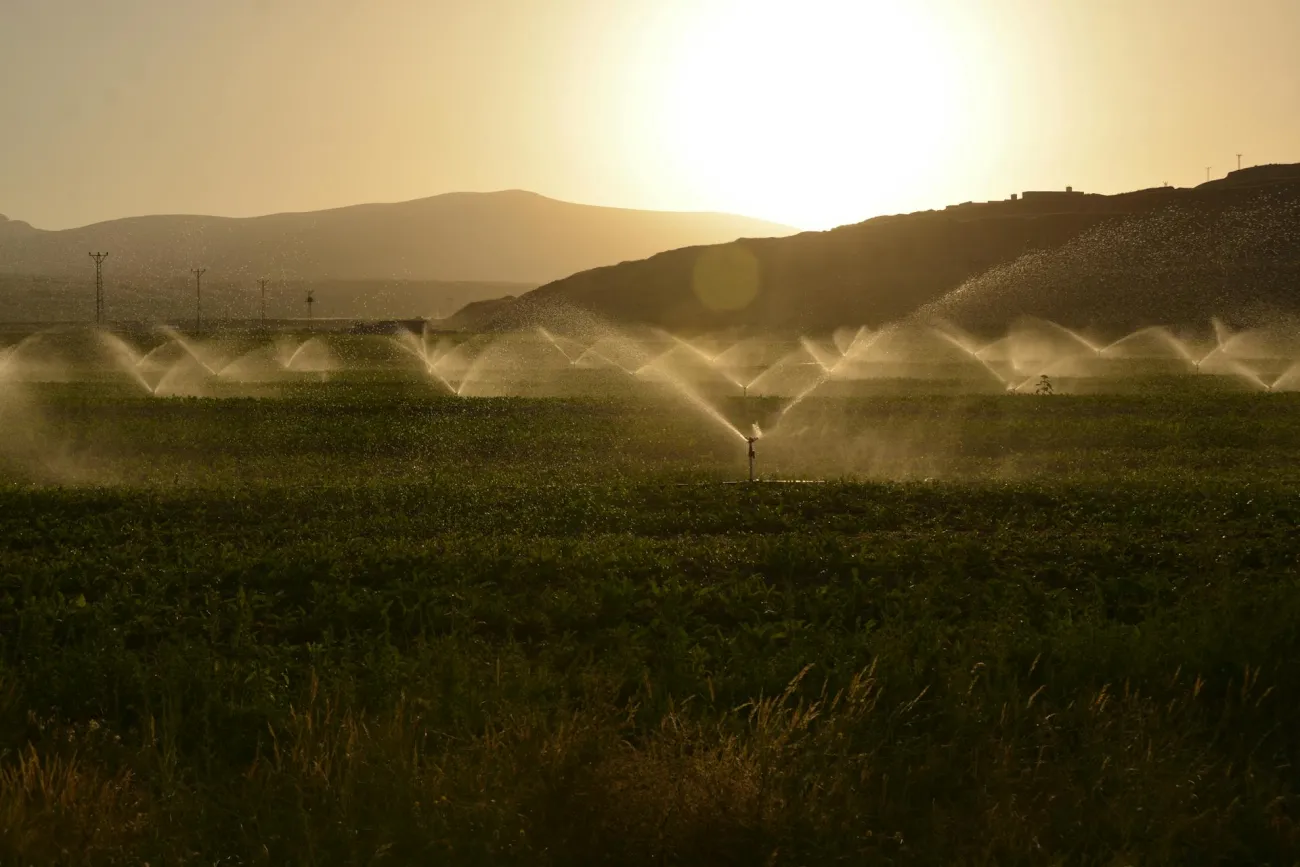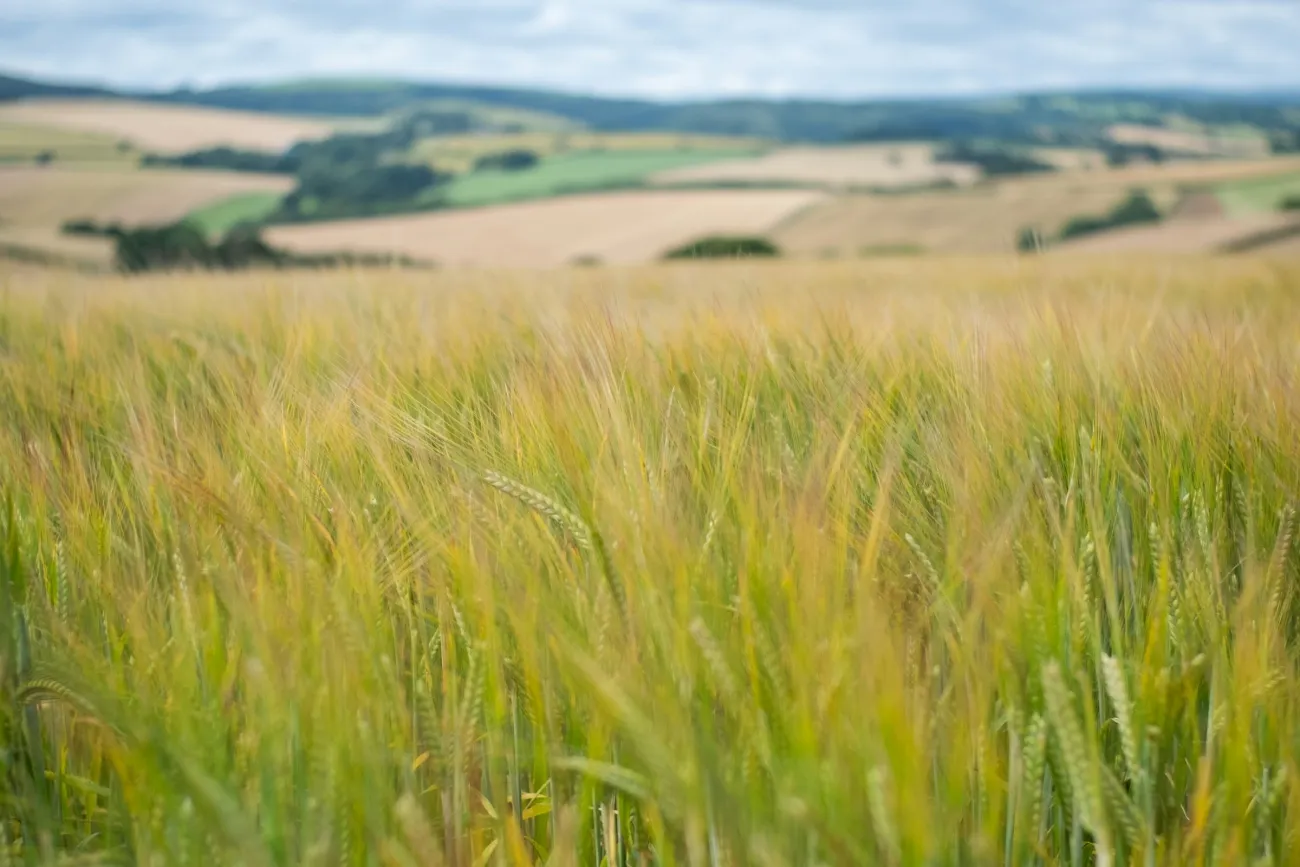This open access article examines the impacts of avocado production, specifically water stresses and socio-economic impacts on local communities in production areas. The paper links the increase in popularity of avocados to the conversion of forest to avocado production in Mexico. The avocado trade also supports thousands of jobs that are paid above the average for the main production regions, while subsistence farming has been displaced to more marginal lands.

The figure below shows the increase in total avocado production since the 1960s. The top producer is Mexico. The European market is also supplied by Peru, South Africa and Kenya in summer and Chile, Mexico, Israel and Spain in winter.

Image: Figure 1, Sommaruga and Eldridge. Development of global avocado production between 1961 and 2018.
The authors suggest that avocado production should be carefully planned with all relevant stakeholders to avoid producing water stress.
Abstract
The market for avocados is among the fastest expanding markets worldwide, and consumption, particularly in North America and Europe, has increased during recent decades due largely to a combination of socio‐economic and marketing factors. Avocado production, however, is associated with significant water conflicts, stresses and hot spots, as well as with other negative environmental and socio‐economic impacts on local communities in the main production zones. In considering near‐future climatic change in tropical and subtropical areas where avocados are produced, an urgent road map is needed to avoid and mitigate negative effects of avocado production. This road map needs to bring authorities and policymakers together with large and small producers from areas with present and projected future water scarcity to evaluate the critical capacity and optimal levels of avocado production. The EU as one of the most important markets for this fruit could facilitate and support such a road map and at the same time critically promote imports from countries and regions where current and future severe water risk are not further threatened. Finally, consumer behaviour can contribute to minimising negative effects by making a conscious effort to engage in ethical consumption and environmental conservation, contributing to the sustainability of communities in producing areas.
Reference
Sommaruga, R. and Eldridge, H.M., 2020. Avocado Production: Water Footprint and Socio‐economic Implications. EuroChoices. Early View.
Read the full paper here. See also the Table explainer Food systems and contributions to other environmental problems and the Table blog post Are modern plant-based diets and foods actually sustainable?




Comments (0)